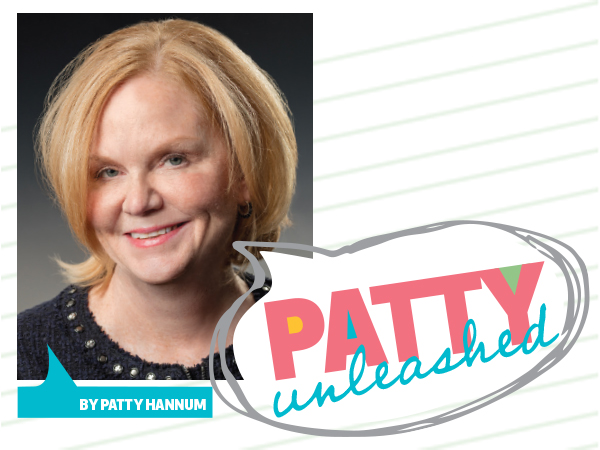I love the English language, but there are certain words that will never appear in this column (except for today) because I hate them. I know hate is strong word, but it is the truth.
‘Foodie,’ ‘artisanal’ and ‘mouthfeel’ are at the top of my list. Let’s start with foodie. Often people use this word as a way to humbly brag. “I’ve just discovered the most amazing new restaurant. It combines sea vegetables with insects. You know, I am a bit of a foodie.” No, no, you are not. Unless you were on an episode of Naked and Afraid, there is no reason for this. (And please don’t email me about how much you like seaweed or kelp; you are lying to yourself.)
Artisanal might get me in trouble. I do believe that it takes a superior skill set to make many foods taste good, especially cheese. And since I grew up eating Kraft American cheese slices, I am always a little surprised by the different cheese options. But whenever I see the word ‘artisanal’ in front of the word ‘cheese,’ I immediately picture cows and goats in swanky living quarters, like an artist’s loft in New York City, instead of a field in Wisconsin. The cows do a little painting, the goats a little sculpting and in the end the cheese they produce is artwork.
And then mouthfeel … no, this is not a typo. The term is not mouthful, but mouthfeel. I worked on a committee where another woman suggested she go to a food tasting instead of me because she had a more sophisticated palate. I guess all those McDonald’s wrappers blowing around the car as I drove through the carpool line gave me away. I suspect that mouthfeel is a word she uses. Food can no longer merely be tasty or smell delicious. You need to be able to discuss how it feels in your mouth, and what it does on the tongue. ‘It is good’ just isn’t good enough.
A few business terms fall into the hated word category, too. I worked in the corporate world for a long time and learned that consultants might bring a fresh set of eyes to solve a problem, but they also bring their own vocabulary—like ‘metrics,’ ‘synergy’ and ‘influencer.’ I will always remember the first time I heard the word metrics. My immediate reaction was, “I am so screwed. I never paid any attention in math class.” Then I quickly realized metrics had nothing to do with the metric system. From then on, I refused to use the word.
Synergy is another one of those words that bubbled up in the 1990s and entered our everyday vocabulary. Instead of talking about compatibilities, people talk about synergies. Is it because there are too many Is in ‘compatibilities’?
And finally, influencer. This is someone who can drive trends. The one who can get you to buy tea that will cause you to lose 10 pounds in a week. These are also known as paid endorsements, but influencers sound so much less like, oh, what’s the word? ‘A sellout.’
That’s it for my word tirade. One last bit of minutiae, though. One of the most disliked words in the English language is ‘moist.’
Contact Patty at phannum@townandstyle.com.








